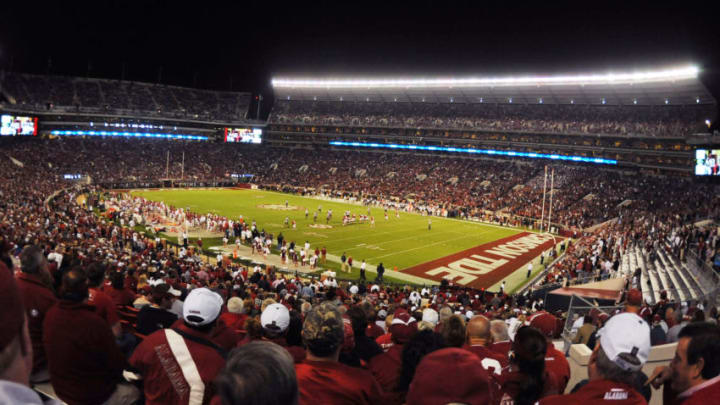There is much good material written on Alabama football history. There is also some garbage. Some writers are so wrong they should just shut up.
A couple of weeks ago I read a story titled 15 Things Alabama Doesn’t Want You To Know About Their Football Program. It recounts 15 negatives about Alabama football going back to 1925. It basically calls the negatives, scandals.
Not wanting to publicize the story is why I have not commented on it until now. Ignoring it is what it deserves. I wish I could just leave it alone.
In fairness to the publication and the author, I stipulate they are honorable professionals and simply failed in achieving a high journalistic standard in this one instance. I can also agree with one of the story’s ‘Alabama football scandals.’ The 1941 national championship should not have been claimed by Alabama.
As a college football historian, I have carefully studied the mythical national championship process. Long ago I concluded Alabama football should not claim 1941. I disagree with the two scandals that contend Alabama football did not deserve national championships in 1925 and 1926.
I see no reason to debate eleven other Alabama football scandals in the story. Though I read none of them closely, each appeared to have no gross inaccuracies. And that leaves one remaining Alabama football scandal.
The author titled the No. 1 Alabama football scandal – “The Bear’s Beliefs.” So little written in that section of the story is worthy of any recognition, I will cite only one sentence.
"Today’s (Alabama) roster is comprised of several players that Bryant, himself, might not have recruited personally.”"
With this claim, the author could not be more wrong. Call me combative, but this is a veiled claim that Bryant was a racist. It warrants a rebuttal.
I hate racists. They deserve even worse than our scorn. Paul Bryant was no racist.
As I referenced earlier I have studied college football and college basketball history for many years. Also, I lived through Alabama’s Civil Rights era and was a University of Alabama student when the football and basketball team was integrated.
Here are facts that I know from study or personal experience.
- The author repeats an old inaccurate claim that Bryant changed his mind about integrating Alabama football after Sam Cunningham and USC ran over Alabama at Legion Field, in September 1970. He also argues that until that event Bryant was too racially prejudiced to recruit African-American players.
Fact: Wendall Hudson signed a scholarship to play basketball at Alabama several months before the 1970 USC game. Paul Bryant was the Athletic Director.
Fact: The night of the USC game in Birmingham, an African-American, scholarship Alabama football player watched from the stands. Wilbur Jackson could not play that night because he was a freshman.
Fact: In 1967, four African-American players made Bryant aware of their intention to walk-on during spring practice. Bryant did not stop them and two competed in the spring though neither made the team.
Fact: When Paul Bryant as Athletic Director hired C. M. Newton in 1968, Bryant knew Newton had integrated the Transylvania basketball program. Newton wanted to recruit the best athletes to Alabama and asked Bryant if he would have any recruiting restrictions. Bryant told Newton there would be only two restrictions. grades and character. By character, Bryant did not mean color of skin.
Fact: Paul Bryant was the head football coach at Kentucky in 1946-1953. Bryant requested permission to recruit African-American football players to Kentucky. The request was denied.
Could or should have Bryant taken more of a leading role in integration? He could have. Bryant was probably more popular in Alabama than George Wallace. He could have pushed harder and sooner but Paul Bryant was no racist.
Some may want to reject my facts. Too often today’s world draws too little separation between fact and fiction. So if the author wants to reject my facts, I have another suggestion. Get on the phone to John Mitchell, Wilbur Jackson, Ozzie Newsome, Dwight Stephenson, Sylvester Croom or a few hundred other African-American players recruited by Paul Bryant AND ASK THEM if Bryant was a racist.
That will not happen of course because the loud chorus of ‘no’s‘ will not provide any sizzle for a baseless attack.
Better yet, issue a retraction and an apology to the Bryant family and the Alabama football nation. I won’t be holding my breath on that either.
I guess I can settle with this. The next time you write about Alabama football, take the time to learn something first.
Next: Ten Tide Football Records that will never be broken
RTR Forever!
